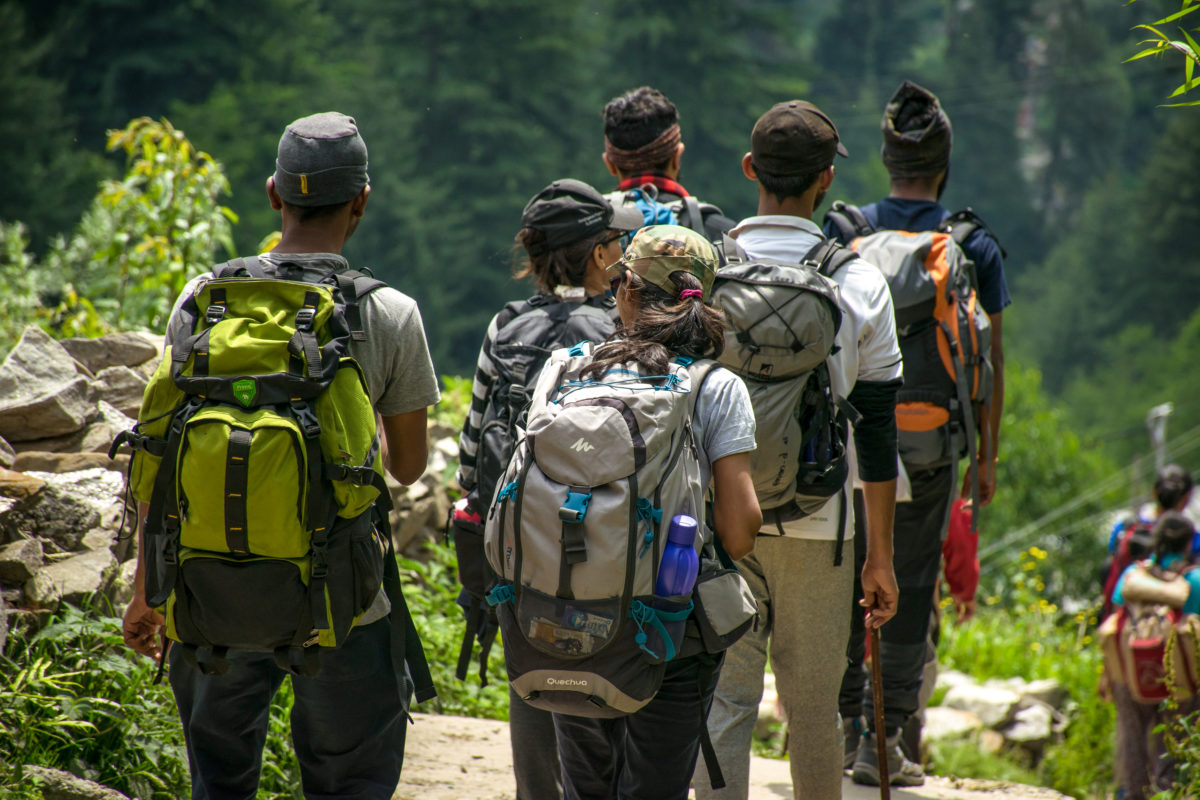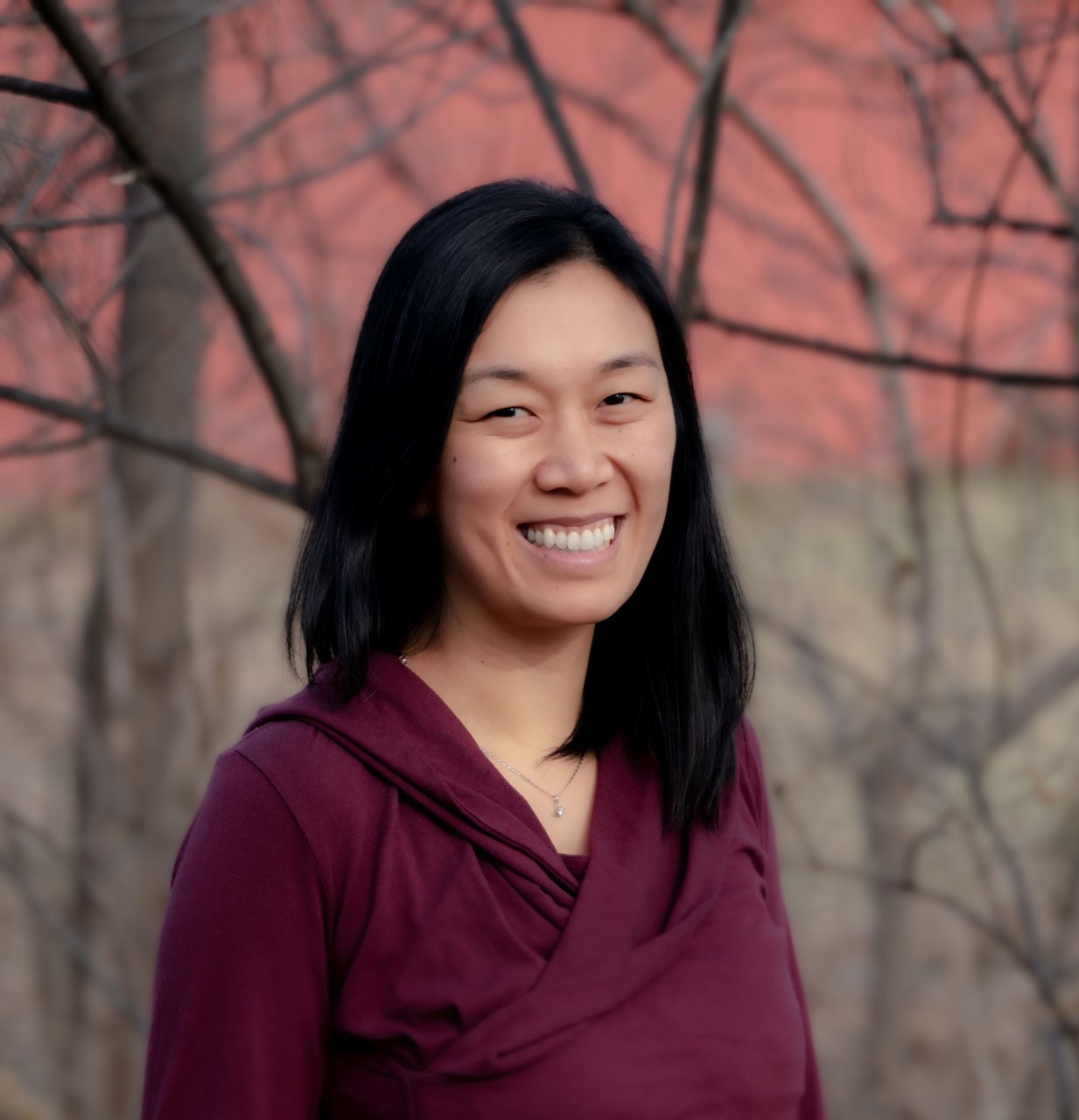
The Au Sable Institute is a Christian environmental education center in Mancelona, Michigan. This post is the fourth of five excerpts from Au Sable Institute’s 2021 workbook Liturgies of Restoration ¸ a five-week study on how our habits can shape us into people who serve, protect, and restore God’s earth. Additional practices and resources mentioned here may be found in the workbook. Graduate students and emerging scholars can order copies of the workbook and also sign up for a fall online workbook study hosted by Au Sable Institute by clicking here. We thank Liuan Huska and the Au Sable Institute for sharing these resources with the Emerging Scholars Network.
____________________
Blessed are those whose strength is in you,
whose hearts are set on pilgrimage.
As they pass through the Valley of Baka,
they make it a place of springs;
the autumn rains also cover it with pools.
They go from strength to strength,
till each appears before God in Zion.
Psalm 84:5-7 (NIV)
After graduation, most college students are bright-eyed and bushy-tailed, ready to change the world. We have studied the problems. We are eager to be part of the solution. And then, we run into real life. Most of our time, we will realize, is spent doing ordinary things that every human needs to do to live: sleep, brush your teeth, put on clothes, wash your clothes, cook or procure food, eat, clean up your messes, cook or procure more food, eat, clean up, sleep, and so on and so forth. Even the most revolutionary, world-changing people spend most of their waking hours doing these things.
We could see these activities as hindrances—inconvenient physical necessities to slog through to get to the important parts of life. But perhaps it is in these mundane moments that the deep work of discipleship happens. The late pastor Eugene H. Peterson called discipleship “a long obedience in the same direction,” but notes that we much prefer instant fixes and shortcuts (“life hacks,” if you want to use today’s lingo). Our society has conditioned us to assume that “anything worthwhile can be acquired at once.”[i]
Peterson wrote these words over forty years ago, but the mindset he describes has only intensified since then. Today, you can buy and sell stocks in minutes to gain tens of thousands of dollars, or compose a tweet of less than 280 characters and be launched to viral internet stardom. It’s easy to fall into the Tyranny of the Now. We feel it from the moment we roll over in bed in the morning to check the endless notifications on our phones, to the moment we finally turn off our screens at night, maybe checking one last time to make sure we didn’t miss anything. We are under constant pressure to catch up with The Latest New Thing. We live with waves of FOMO: fear of missing out.
Amid this torrent of news, information, and status updates, we quickly lose our way. Everything seems important. Everyone seems to be shouting for our attention. If we try to heed every call, our attention is sliced into a thousand tiny slivers and we end up giving nothing our full attention. In fact, in the times when we are called to focus deeply—whether to pray or study or listen to the person in front of us – we find ourselves itching to check our phones. Our ability to concentrate has eroded.
It’s no surprise that more and more people are turning to practices of meditation and mindfulness; we are realizing the need to retrain our minds and hearts. We are tired of being everywhere at once and nowhere at all. We long to be here.
Meditation and mindfulness have their roots in eastern spiritual traditions, but within the Christian faith, many teachings point us in this same direction. The contemplative and monastic traditions invite us into the ancient, tried-and-true practices of silence, solitude, and stillness.[ii] They draw from biblical stories, such as the prophet Elijah’s encounter with God, who was not found in the wind, earthquake, or fire, but in “a sound of sheer silence” (1 Kings 19:11-18).
Perhaps the most compelling invitation comes from Jesus himself. Jesus started his public ministry when he was about thirty years old, but until then he lived in obscurity, doing the manual work of a carpenter, living with his family, immersed in everyday existence. Were these early years “wasted”? What was the Son of God doing as a regular human being? Why didn’t he reveal his divinity and perform wonders earlier?
Maybe these early years weren’t pointless, but essential. The author of Hebrews writes that Jesus “learned obedience through what he suffered” (5:8), referring to the events leading up to and through his crucifixion. But if our lives are “a long obedience in the same direction,” then Jesus must have been practicing obedience in small, unnoticed ways all the way up until those momentous days.
His ability to say yes to the cup of suffering set before him, which would lead us all to redemption, did not happen at once, but grew out of the many yeses he said to God throughout his life. Yes, I will obey my mother and father. Yes, I will forgive my siblings when they hurt me. Yes, I will serve my people with my hands and this wood. Yes, I will be faithful in these mundane moments of eating and washing and cleaning. Yes, and yes, and yes again. Yes, I will be baptized by my cousin John. Yes, I will go out into the wilderness. Yes, I will eat with sinners. Yes, I will heal the sick. Yes, I will offer myself up to die.
In each of our lives, we have a thousand small opportunities to say yes to God. And perhaps, one day, when we have learned to say yes countless times in seemingly insignificant matters, our hearts will be ready to hear the big question God asks of us, and we will be ready to say our yes. Or maybe there will be no big yes. Maybe the sum of our innumerable small yeses is enough, adding up to one big yes.
Liturgy and Counter-Liturgy #4:
God’s work of transformation happens in the ordinary moments of our lives.
vs.
Life is only meaningful if it is new and stimulating.
We can only start here and now, paying attention to how God invites us to transformation in the ordinary moments of our lives. “Everybody wants a revolution, but nobody wants to do the dishes,” said Dorothy Day, the founder of the Catholic Worker movement. Or, to put it in ecological terms: “Everybody wants to save the planet, but nobody wants to pick up the trash.”
Instead of being tourists in our own lives, taking pictures to show we were here or always looking for the new and stimulating, we are called to the long, steady task of discipleship, or pilgrimage, writes Peterson.[iii] Pilgrims, as the psalmist depicts in the passage that opens this chapter, set their hearts on the long journey. They endure the valleys and dry spots, the places where nothing much seems to be happening. Because they have established a deep connection with God, forged through countless small yeses in prayer, silence, solitude, and service, they find springs of water, autumn rains, strength and refreshment—even in these desert places.
Can we, too, become pilgrims? Can we resist the pull to distraction and noise, to the voices that tell us we’re only significant if we have likes and followers and a platform? Can we set our hearts and habits on the journey, knowing that it is long and arduous, often unseen and boring? “The gate is narrow and the road is hard that leads to life,” Jesus said (Matt. 7:14). But take note: this is the path that leads to life.
____________________
[i] Eugene H. Peterson, A Long Obedience in the Same Direction: Discipleship in an Instant Society, 40th anniversary commemorative edition (Downers Grove, IL: InterVarsity, 2019), 10.
[ii] See Kyriacos C. Markides, The Mountain of Silence: A Search for Orthodox Spirituality (New York: Image, 2002); Thomas Merton, New Seeds of Contemplation (New York: New Directions, 1962); and Ruth Haley Barton, Invitation to Solitude and Silence: Experiencing God’s Transforming Presence (Downers Grove, IL: InterVarsity, 2010).
[iii] Peterson, A Long Obedience, 9-12.
Previous posts in this series: #1, #2, and #3

Liuan Huska is a freelance journalist and writer at the intersection of faith, environment, health, and culture. She has bylines in Sojourners, Christianity Today, Psychology Today, Hyphen, The Christian Century, and other publications. She is also the author of Hurting Yet Whole: Reconciling Body and Spirit in Chronic Pain and Illness, a book weaving theology, sociocultural analysis, and memoir. She lives in the Chicago area, on ancestral Potawatomi land, with her husband and three children.

Leave a Reply